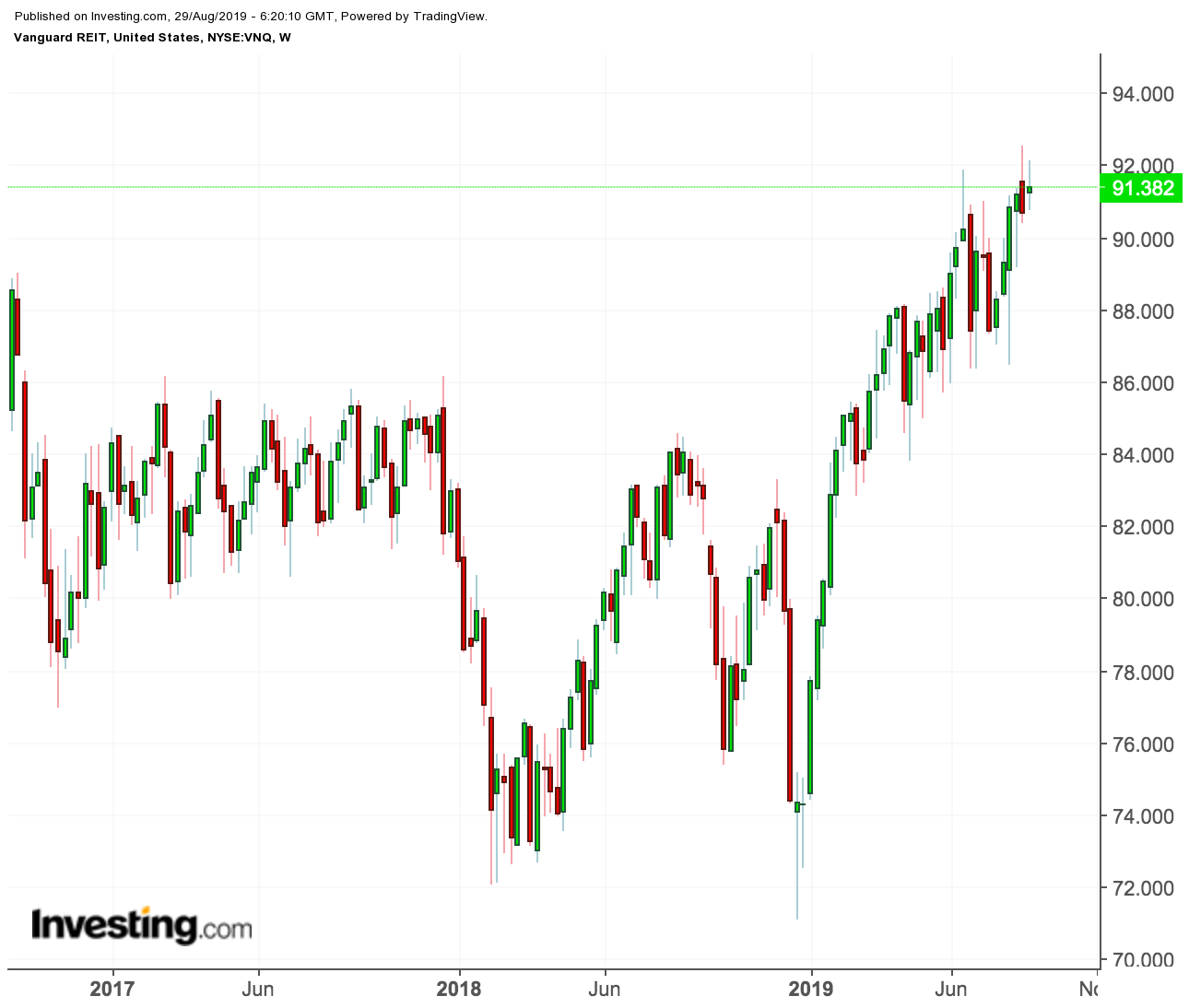Long-term investors seeking ways to diversify risks may want to consider some exposure to real estate. The timing for investing in this asset class has become favorable again on expectations that the Federal Reserve will deliver more interest rate cuts to save the U.S. economy from entering a recession amid the intensifying U.S.-China trade war.
There are many advantages to owning real estate assets in your portfolio. Because real estate has a low correlation to other financial investments, such as stocks and bonds, by adding real estate to your existing portfolio, you spread your risks. In a low interest rate environment, for example, property values improve and outperform other assets.
Buying top real estate investment trusts (REITs) is one way to include property in your portfolio. To invest in REITs, you don’t need millions of dollars; you can start with as little as $5,000.
There are many advantages to investing in REITs. One of the biggest is that REITs are run by professional managers who know how to manage real estate assets and get the best returns. The second benefit is that many tax laws favor REITs, which must distribute a major part of their taxable income as dividends to shareholders.
REITs typically fund investments by raising capital in the equity and debt markets, including through short-term financing, and they use leverage to amplify their bets.
Have You Missed the Boat on REITs?
But is it a good time to invest in REITs, or have investors on the sidelines already missed the boat? The Vanguard Real Estate ETF (NYSE:VNQ), which is a proxy for the REIT sector, has gained about 23% this year, against the S&P 500’s 15% return.
In the past month, the ETF jumped more than 3% when the S&P 500 actually fell 4% as the yield curve inverted, giving one of the clearest signals to investors that a recession, which will force the Fed to cut rates, is becoming more imminent.
A recent report in the Wall Street Journal said that even if we see a global economic slowdown, REITs may be able to sustain their positive performance because the real-estate industry has improved its corporate governance and is less dependent on leverage.
Citing John Creswell, the executive managing director at Duff & Phelps Investment Management Co., the report adds that REITs could prove a better bet if a slowdown hits the economy, partly because of pent-up demand for single-family rental homes, self-storage units, data-center space and cell towers—sectors that have boosted REITs’ performance this year.
If you’re new to REITs and want to take a low-risk approach to this sector, it’s better to invest through exchange-traded funds (ETFs). Vanguard, for example, has a low expense ratio of 0.26%, with a dividend yield of 4.7%.
An alternative to the Vanguard ETF could be the iShares Core U.S. REIT ETF (NYSE:USRT), which also offers good exposure to U.S.-focused real estate companies. Currently, this ETF is offering 4.47% annual dividend yield with 21.46% year-to-date return.
Bottom Line
In this upbeat environment for REITs, however, one should remember that investing in REITs is basically a bet on the direction of interest rates. The current dovish sentiment about the Fed’s future rate policy could reverse quickly if the U.S. economy continues to show resilience, or the country strikes a deal with China over its trade dispute. That said, long-term investors won’t lose if they pick quality REITs that offer a regular income stream.
